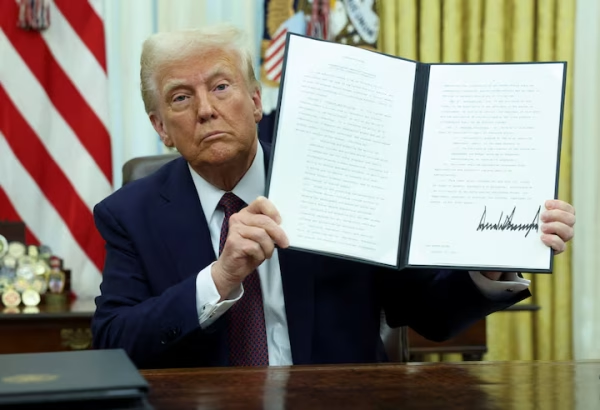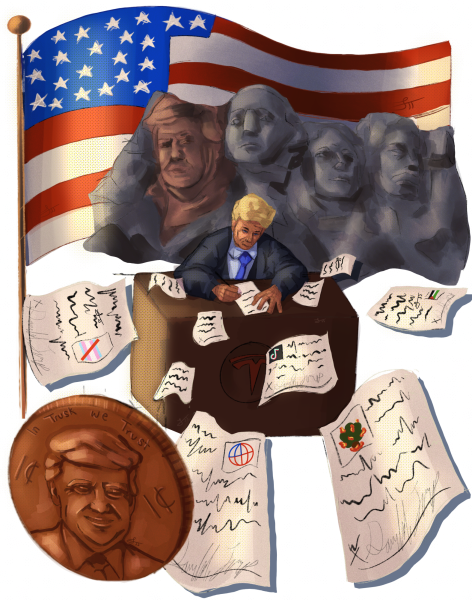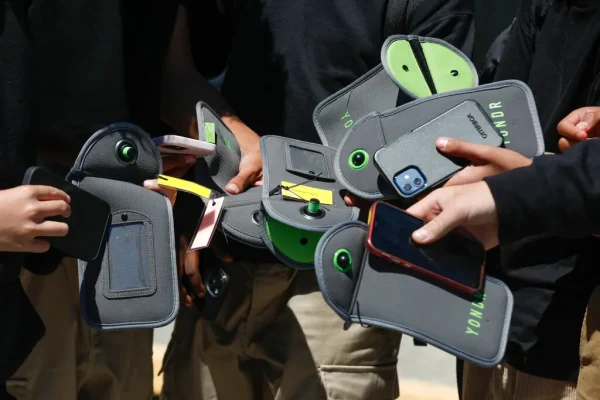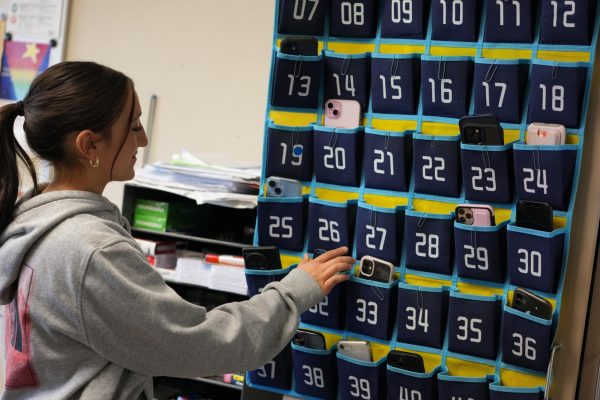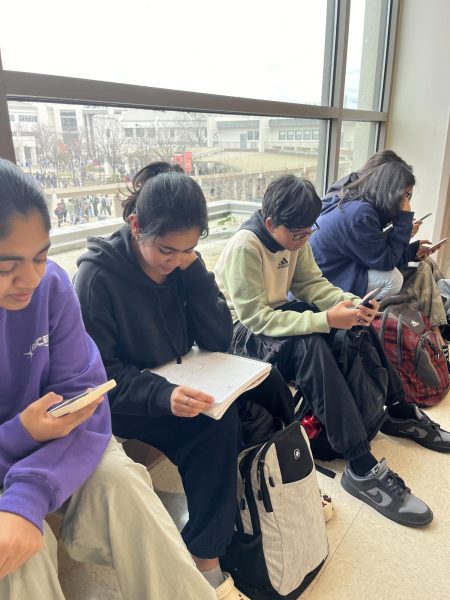Cal history teachers reflect on the storming of the Capitol
Riots raise concerns over the future of the country
A massive crowd of Trump supporters shocked the world on Jan. 6 by storming the Capitol, impacting not only those who were back in Washington, D.C. but Americans across the country.
Looking back on the incident, many Cal High history teachers reflected on what happened and tried to provide some perspective.
“[I] felt heartsick,” AP US History teacher Scott Hodges said. “It was a violation on what is safe with the actions of the people.”
Like Hodges, many other history teachers were upset that the people were able to easily penetrate the Capitol Building.
“What they did on Jan. 6 at the Capitol was ‘a shabby, clownish, idiotic, and aimless act of mass vandalism’,” said world history teacher Chris Doherty, quoting Dr. Jill Lepore, an American history professor at Harvard University.
Unlike most events that are broadcasted on the news, which only show the aftermath, Americans were able to witness the actions of those Trump supporters via social media.
“There is a big difference between ‘knowing’ something on an intellectual level and seeing the videos and pictures of the event as it happened,” world history teacher Ryan Cook said.
Although many teachers suspected an event like this would occur, some believe that there were other motives behind the attack on the Capitol.
“There were participants involved who very much believe it is their duty to uphold white supremacy in this nation,” world history teacher Benjamin Andersen said.
Some history teachers saw the riot coming and said that the government could have prevented or predicted this from happening, as then-President Donald Trump had talked about marching up to the Capitol at his rally that day, urging his supporters to protest Congress’s election certification of Joe Biden as the next president.
“You needed two brain cells to see this coming,” world history teacher Tyler Gulyas said. “There was a warning on social media platforms. The president announced what was going to happen.”
Cook believes that the only way for this to be prevented was for Trump to concede, but he strongly believes that the prediction of the storming of the Capitol was easy to see.
“Prevention and prediction are two different things, but I don’t think you need a PhD in History or [Political Science] to ‘predict’ that something was bound to happen,” Cook said.
But no clear measures were taken to prevent the Capitol riot. According to NPR, then-Capitol Police Chief Steven Sund’s requests for the National Guard to be deployed were rejected six times before they were accepted.
Gulyas was among those who contrasted the riot with the Black Lives Matter protests that took place last summer, when lines of soldiers were present before protestors even came to view, waiting for the cue to attack.
“The news is the first draft of history,” Gulyas said about the Capitol. “The first draft looks pretty bad, horribly embracing, transparently racist. A protest a few months earlier was treated much differently.”
Most history teachers like Andersen believe Jan. 6 that will change American history.
“I think this will go down as a date most Americans will remember,” Andersen wrote. “I am not an optimist and I believe we could be seeing the slow decline of the United States as the peak world power.”
Before the riot took place, the United States had a major influence on the rest of world, but Gulyas doesn’t quite know how the world will treat and view the U.S. now.
“You only know the historical significance once you get away from it,” said Gulyas, who believes the aftermath of Capitol riots has just begun. In his opinion
Andersen said if the government continues to ignore the reasons the Capitol was stormed, the problem won’t go away and will continue to be an issue.
“I think this action gives more credence to talking about the more unsavory events in US history,” Andersen said. “If we do not talk about the problems of this country and attempt to fix them, they will continue to fester.”
Some history teachers believe that a lot of the problems in the United States have been brewing for quite a while and are reaching a breaking point.
“The truth is, we are all still living through and working out the same questions, issues, and contradictions that our ancestors were,” Cook said. “The storming of the Capitol really put an exclamation mark on the fact that American history is not done, and that we are all actively taking part in it.”
Many believe that one way the country can help reshape the information that is given out to people is to go to the source: school history textbooks. Gulyas believes the change in textbooks depends on the outcome of this event. He said that before, textbooks highlighted American exceptionalism, or how the U.S. is better than other countries.
Some history teachers think one of the main problems is how Amercians digest the news through social media.
“More education about internet literacy needs to be done, and we all should reevaluate how we use social media,” Andersen said. “When we all rely too much on social media for news our ideas and beliefs are not fully developed, they will only be as long as the tweet or Instagram post allows.”
Most history teachers don’t believe we are in the clear yet.
“A lot of the underlying problems that led to the riot still have not been solved,” Cook said.
Hodges believes that the riot can happen again and lead to more problems and violence.
“It was a mob, and mobs can do dangerous things,” Hodges said. “And [it] could happen again if incited.”
The U.S. has one of the strongest militaries in the world, along with its heavy influence on other countries. Gulyas sees this as a problem if this power gets into the wrong hands.
“We are the biggest threat to anyone in the world, including ourselves,” Gulyas said. “We’re the most well armed military. We are the most recklessly dangerous thing on Earth right now.”
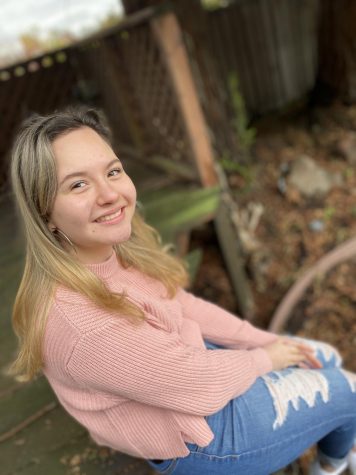
Sienna Morgan is a sophomore at Cal High and is excited to begin their first year as a reporter for the Californian! Sienna has a passion for creative...
